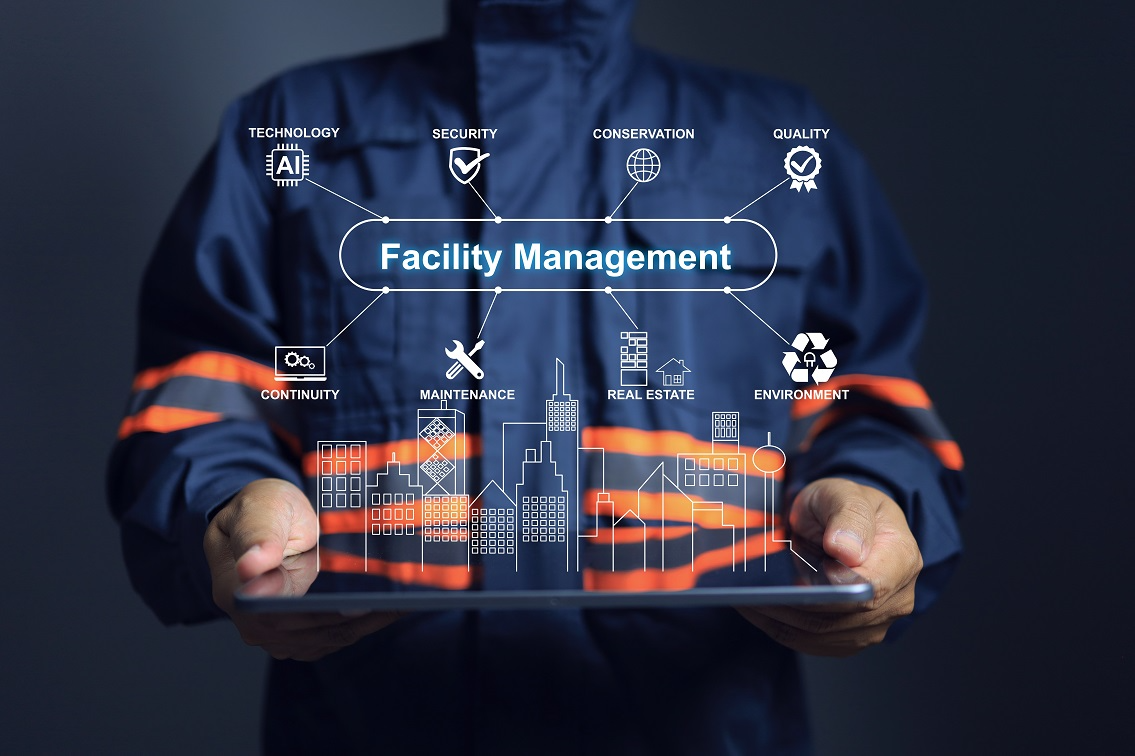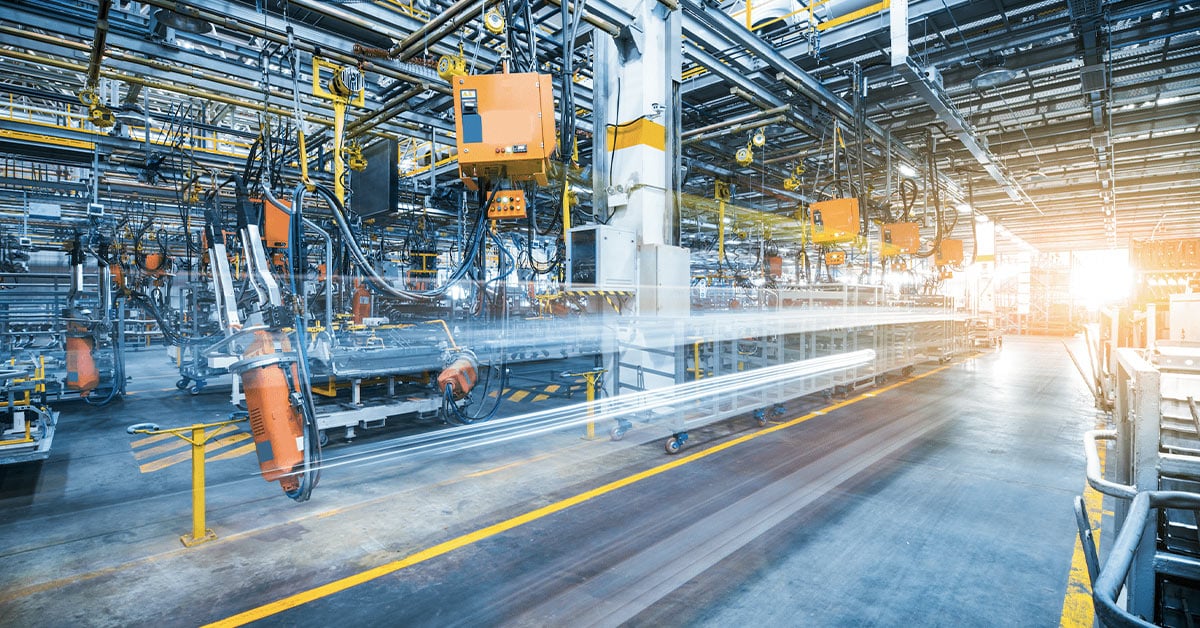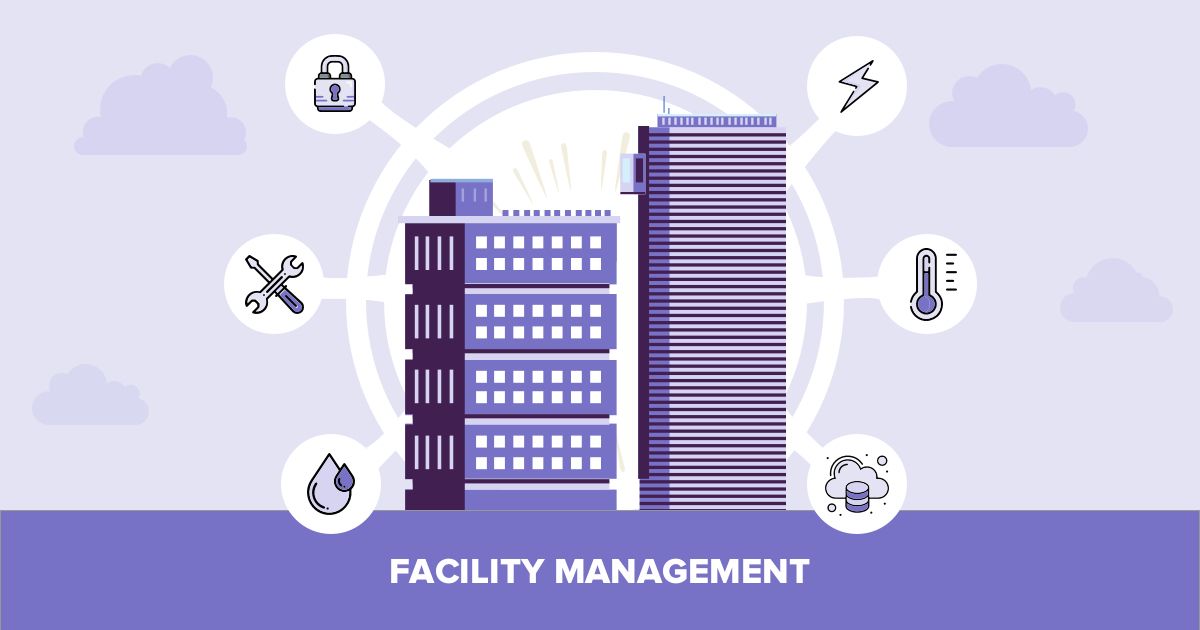Facility Management-- Streamlined Procedures and Expense Savings
Facility Management-- Streamlined Procedures and Expense Savings
Blog Article
Secret Patterns Forming the Future of Facility Monitoring in 2024
As we look in advance to 2024, the landscape of center monitoring is poised for significant change, driven by a number of key trends. The integration of wise building modern technologies and a change towards data-driven decision-making guarantee to enhance functional performance while prioritizing sustainability in method.
Smart Building Technologies

Smart building modern technologies include a vast selection of systems, consisting of intelligent illumination, a/c controls, and safety and security systems. By integrating these systems, facility supervisors can keep an eye on and readjust parameters in real-time, leading to considerable reductions in energy waste and operational expenses. As an example, wise sensors can spot tenancy levels and adjust illumination and temperature level appropriately, making certain that energy is only made use of when required.
In addition, these innovations promote improved data collection, permitting companies to track use patterns and identify opportunities for further enhancements. The execution of wise structure modern technologies not just adds to sustainability goals however likewise produces much healthier workplace that can enhance worker performance and fulfillment.
As we relocate into 2024, the fostering of clever building innovations will likely increase, showing a wider change in the direction of even more smart, responsive, and sustainable facility monitoring practices.
Data-Driven Decision Making
Increasingly, organizations are leveraging data-driven decision making to improve center management practices. By using information analytics, center managers can derive workable insights that dramatically enhance functional efficiency and source allocation. The integration of innovative modern technologies, such as IoT sensing units and real-time tracking systems, enables the collection of substantial quantities of data on building efficiency, occupancy prices, and energy intake.
This wealth of details allows facility managers to identify patterns, predict upkeep demands, and proactively address issues before they rise. For instance, predictive analytics can forecast devices failings, decreasing downtime and repair prices. In addition, information visualization tools help with far better interaction among stakeholders, making sure that notified decisions are made collaboratively.
Moreover, data-driven approaches boost tactical preparation by enabling center managers to evaluate the performance of present techniques and make educated options regarding financial investments in modern technology or facilities. As companies increasingly focus on operational excellence, data-driven decision production is poised to become a keystone of effective center administration methods in 2024 and beyond. Eventually, the capacity to utilize information effectively will equip organizations to produce extra effective, efficient, and resilient facilities.
Sustainability and Environment-friendly Practices
The focus on data-driven choice making normally lines up with the growing concentrate on sustainability and get redirected here green practices within center administration. As organizations progressively Homepage focus on ecological duty, facility managers are leveraging analytics to maximize source usage, lower waste, and decrease carbon footprints. This tactical strategy allows the assimilation of energy-efficient systems, such as LED lights, smart HVAC controls, and sustainable energy sources into center operations.
In addition, the application of sustainable techniques prolongs past energy consumption. Facility supervisors are promoting and taking on environment-friendly materials recycling efforts to develop a circular economic situation within their facilities. This not only improves the ecological profile of the organization however also fosters a society of sustainability amongst staff members.
Conformity with ecological laws is an additional vital element driving the fostering of environment-friendly methods. By utilizing information analytics, center supervisors can keep track of compliance metrics and determine areas for renovation, making sure adherence to regional and global sustainability requirements.
Hybrid Work Versions
A considerable change towards crossbreed work models is improving the landscape of center monitoring in 2024. This paradigm combines remote and in-office work, requiring a reevaluation of room use, source appropriation, and employee interaction methods. Organizations are significantly recognizing the importance of versatile workspaces that satisfy varied needs and preferences.
Facility supervisors should adapt by implementing versatile workplace designs that support joint efforts while offering locations for focused job. This includes the assimilation of technology to promote seamless interaction and cooperation amongst remote and in-office workers. Smart building services, equipped with sensors and analytics, enable real-time tracking of area use, enabling companies to maximize their atmospheres efficiently.
In addition, hybrid work versions highlight the requirement for reliable center management that focuses on worker experience. In significance, the hybrid job design is transforming center administration, motivating a positive technique to satisfy the advancing needs of the workforce.
Enhanced Passenger Wellness
As organizations accept hybrid job models, a heightened focus on passenger wellness is coming to be essential to center management approaches. Facility Management. This change identifies that a pleased and healthy and balanced labor force directly impacts efficiency and retention prices. Facility managers are now focusing on atmospheres that advertise physical and psychological health, incorporating components such as natural lighting, biophilic layout, and easily accessible wellness sources

Innovation plays a critical function in this advancement. Smart building systems can keep track of environmental elements and adjust setups in real-time, making sure optimal comfort degrees - Facility Management. Additionally, feedback devices, such as occupancy sensors and employee studies, permit center managers to continually improve wellness campaigns based on resident needs.

Final Thought
In 2024, the future of center management will certainly be considerably affected by the assimilation of clever structure modern technologies and data-driven decision-making, fostering improved operational efficiency. Sustainability efforts will focus on environmentally friendly practices, while the appearance of crossbreed job models will require flexible office designs. Additionally, an increased focus on passenger wellness through innovative HVAC systems and biophilic design will certainly add to much healthier work environments. These trends jointly underscore the advancing landscape of center monitoring in reaction to contemporary challenges and possibilities.
Center supervisors are taking on eco-friendly products and advertising recycling initiatives to produce a circular economic situation within their facilities.A substantial change in the direction of crossbreed job designs is reshaping the landscape of center management in 2024.Additionally, hybrid job models highlight the need for effective facility monitoring that focuses on employee experience.As companies embrace hybrid work versions, a heightened emphasis on passenger health is coming to be integral to center administration approaches.In 2024, the future of facility management will certainly be considerably influenced by the assimilation of wise structure innovations and data-driven decision-making, fostering enhanced functional effectiveness.
Report this page